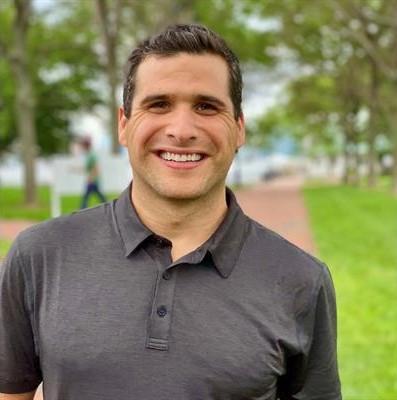Tisch Library's "Affordable Course Materials Profiles" feature interviews with faculty & instructors who have received an Affordable Course Materials Award.
This interview is with Professor Scott Greenspan, lecturer in the Department of Education. Professor Greenspan received an Award for Fall 2024.

What department do you teach in? Which classes do you most commonly teach?
I teach in the Department of Education, and I am a core faculty member within the school psychology graduate program. I teach courses centered on evidence-based counseling interventions (including Cognitive Behavioral Therapy, Motivational Interviewing, and Solutions Focused Therapy) (ED-237 and ED-238), social-emotional assessment (ED-246), and research methods (ED-247). I also lead a practicum seminar where I provide university-based supervision to students engaged in school psychology fieldwork.
Briefly describe your project to use or create more affordable course materials for students.
During Summer 2024, The Affordable Course Materials Award provided me with the opportunity to update materials for the school psychology second-year practicum (ED 231/232) and ensure that students have access to the most updated resources within our field at no cost.
ED-231/ED-232 is a year-long program and licensure requirement where second-year graduate students engage in supervised clinical experiences in local school districts. They also meet once weekly in small groups with university-based faculty for group supervision. During this time, they reflect on issues and questions related to their practice, and they complete structured assignments focused on assessment, intervention, and consultation within their school placements. Approximately twenty students take this course per year divided across four sections taught by full-time and part-time faculty.
The field of school psychology is rapidly changing considering new research and policy that grounds our work. Given this quickly changing landscape, there is a critical need to update practicum course materials to reflect the current literature base and ensure alignment with best practices within the field. Further, it is imperative that students have instant access to the most updated resources to inform high-quality work with youth, families, and school systems.
This grant provided me with the opportunity to update all practicum seminar course materials (i.e., syllabus, readings, sample reports, sample assignments, instructions, rubrics). These updates supported increased accessibility and alignment to National Association of School Psychologists (NASP) Standards. From there, I developed a database of peer-reviewed books and articles available through Tisch Library and housed these materials in a centralized Canvas page to streamline access.
What motivated you to use these new materials?
Our practicum experience within the school psychology program requires students to develop competence in their skills within all domains of school psychology practice including assessment, intervention, and consultation. It is important that students develop familiarity with accessing resources to inform their service delivery. It is imperative that they can freely navigate and find such materials using the wealth of resources within Tisch Library. I wanted to ensure that practicum materials were up-to-date and that students had instant access to new editions of textbooks and recently published literature within peer-reviewed journals. I was further motivated to ensure that our assignments, rubrics, and sample reports reflected the most up-to-date practices and terminologies.
How were students impacted by the new materials? What was their reaction?
Students have discussed the utility and efficiency in having these resources in one location organized by domain of practice. I have linked the database within my practicum seminar agenda and refer students to access it when locating relevant resources. This provides students with a “landing page” to begin their search for applicable documents and resources to guide their academic and clinical work. I plan to continue updating this document, so it remains current and aligned with the most up-to-date research and practice guidance.
What was your experience incorporating these new materials into your course? How did the Tisch award support your work? Were there challenges?
I was able to smoothly incorporate these new materials into the practicum experience. I first met with all practicum instructors to review these materials and discuss how they can incorporate these resources within their seminar sections. I offered to meet with faculty individually to help them with this process if they needed additional support. This allowed for alignment and consistency across faculty and allowed for dissemination of these materials to students. I also encourage students to review these resources to inform their developing skills as they enter the field as early career professionals.
I am appreciative to the Tisch Library for their partnership and support in this initiative. Many of the updated materials were already available through the library, and the library staff were incredibly responsive in helping locate and adopt additional e-books and book chapters as needed. I am also appreciative that the course syllabus and select documents are now published on the Tisch Library website for others within the School Psychology and related fields to access.
Do you have any advice for other faculty considering a switch to open and affordable course content?
The library serves as a beneficial asset and resource to support students in accessing the most updated materials in an affordable manner. I feel very aligned to the library in supporting this mission. If you are interested in identifying more affordable and open-sourced options for students, I recommend meeting with the staff at the Tisch library. You will walk away with new ideas and resources to enrich your student’s academic and training experiences. I am also happy to meet with faculty and students and discuss my valuable experience updating the practicum seminar course with support of the Tisch Library Affordable Materials Award.